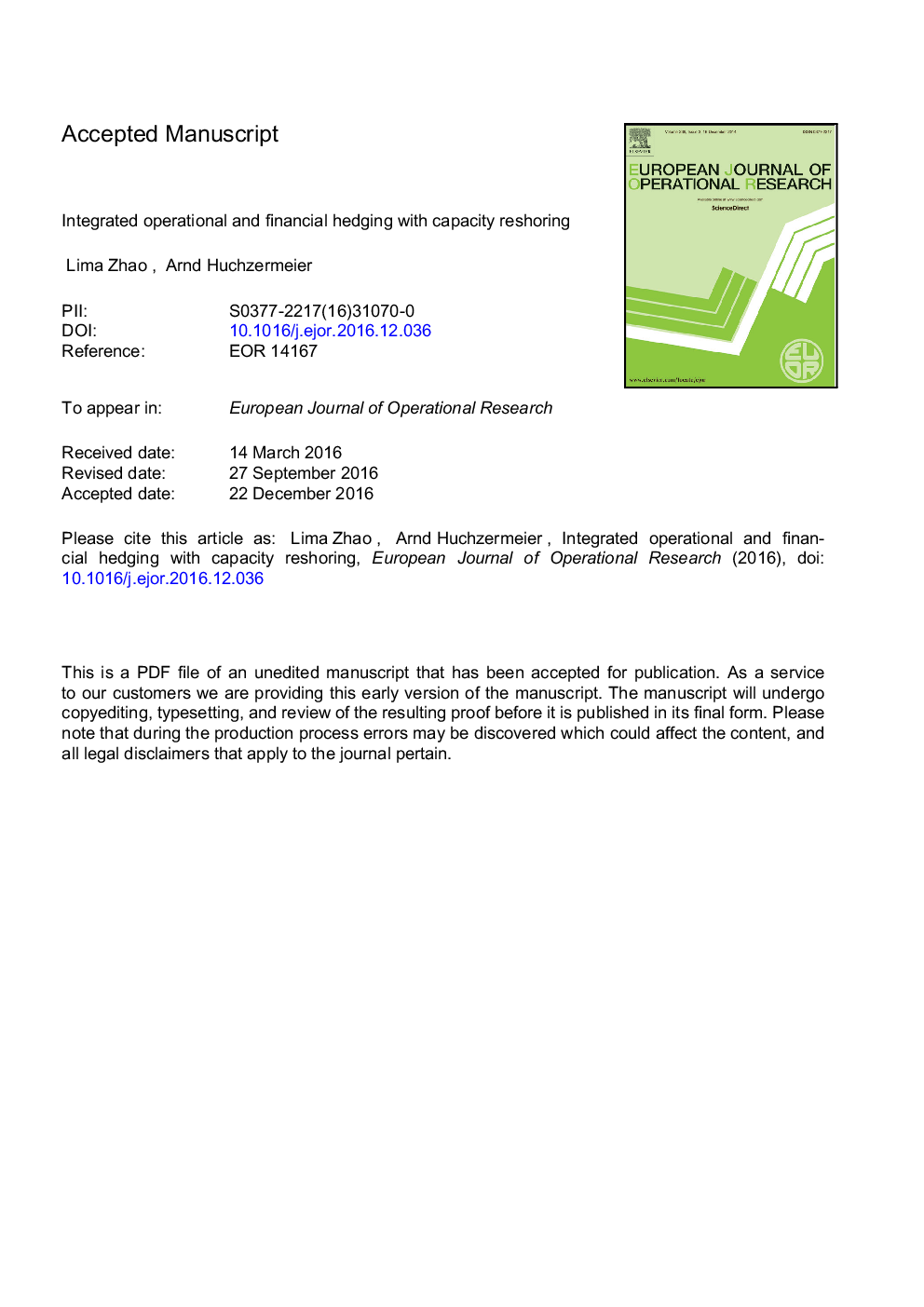| Article ID | Journal | Published Year | Pages | File Type |
|---|---|---|---|---|
| 4959849 | European Journal of Operational Research | 2017 | 28 Pages |
Abstract
We consider a multinational corporation that employs capacity reshoring, production switching, and financial hedging to manage supply-demand mismatches and currency risk. We optimize mean-conditional value-at-risk (CVaR) by decomposing operations and finance: operational flexibility maximizes expected profit subject to a CVaR constraint, whereas financial hedging minimizes CVaR subject to a minimum expected profit. We report three main findings. First, operational flexibility and financial hedging can be complements: operational flexibility enhances profitability and reduces downside risk, while financial hedging minimizes downside risk and can affect the feasible set of capacity portfolios (albeit indirectly) by relaxing a CVaR constraint. Second, operational flexibility and financial hedging are substitutes in risk reduction (though the latter has greater risk reduction effects in CVaR when used alone). Third, coordinating operations and finance is crucial for minimizing substitution effects. Efficient financial hedging depends on rigorous estimation of cash flow distribution as shaped by operational flexibility, and a capacity portfolio's feasibility relies on financial hedging because of the CVaR constraint.
Related Topics
Physical Sciences and Engineering
Computer Science
Computer Science (General)
Authors
Zhao Lima, Arnd Huchzermeier,
